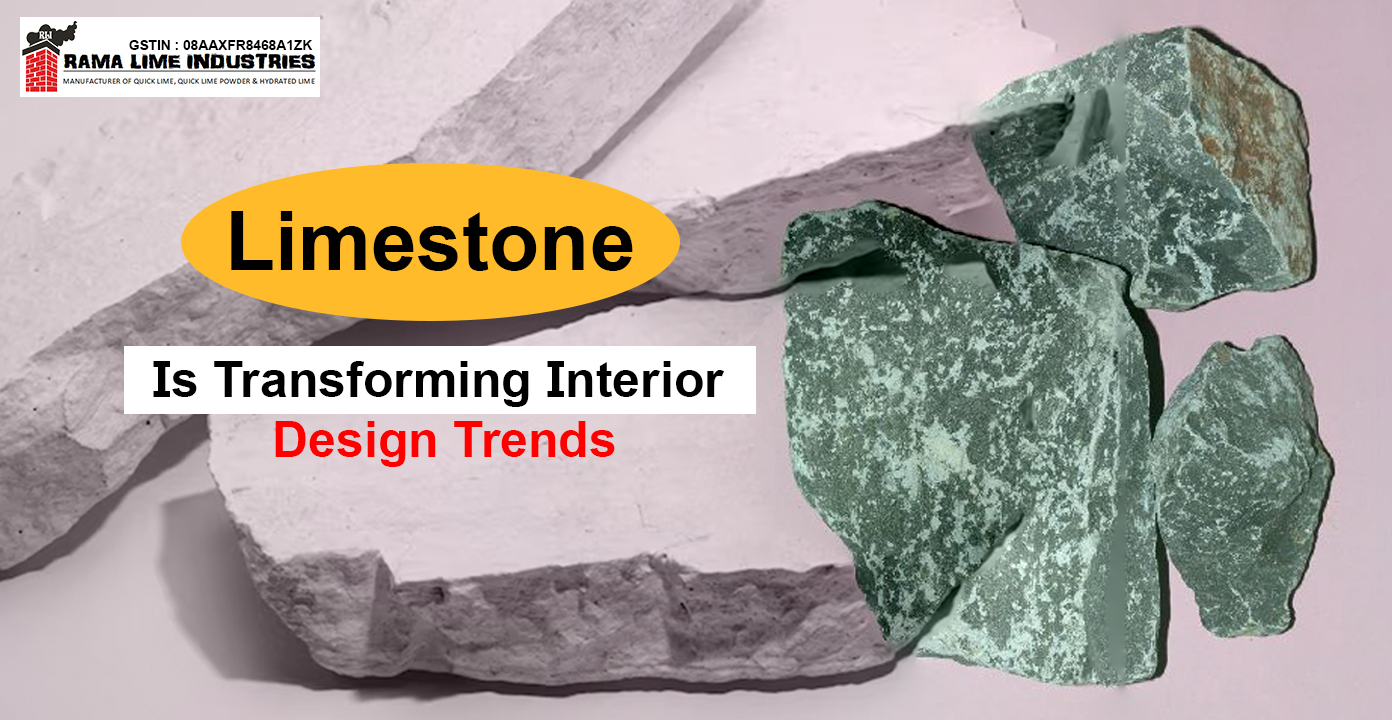
Limestone has been a timeless building material for centuries, admired for its natural beauty and versatility. But in 2025, it’s making a powerful comeback in the world of interior design — and for good reason. This versatile stone adds a natural elegance that’s hard to match, and companies like Ramalimeindustries are pushing the boundaries of its potential.
Limestone is a sedimentary rock composed primarily of calcium carbonate. Its soft texture allows for intricate carving, while its porous nature gives it a unique ability to regulate indoor humidity. Unlike synthetic materials, limestone has a warm, organic appeal that complements both traditional and modern interiors.
Why is limestone trending now? Several factors are at play — from the growing demand for sustainable materials to the increasing focus on natural aesthetics in homes and commercial spaces.
Eco-conscious Building: Limestone is a sustainable option, often locally sourced and highly durable.
Natural Textures: Designers are moving away from glossy, synthetic finishes toward more authentic textures.
Health Benefits: Limestone's natural properties can improve indoor air quality, an increasingly important factor in design.
Limestone’s subtle colors and textures bring a calm, earthy vibe that adds warmth to any room. From polished countertops to rough-hewn accent walls, it introduces a natural charm that synthetic materials can’t replicate.
Thanks to its porous surface, limestone can absorb humidity and pollutants, helping maintain a healthier indoor atmosphere. This makes it especially beneficial in humid climates and homes where air circulation is limited.
Limestone’s robustness ensures that it withstands wear and tear over time. When properly sealed and maintained, limestone surfaces can last decades without losing their appeal.
Limestone is incredibly adaptable. It can be used for flooring, wall cladding, fireplaces, bathroom surfaces, and even furniture. Its natural tones fit seamlessly with many color palettes and design styles.
As a natural stone, limestone has a lower carbon footprint than many man-made materials. Ramalimeindustries emphasizes eco-friendly extraction and processing, aligning with green building certifications.
Limestone’s refined texture and range of finishes add sophistication to interiors. Luxury hotels, upscale residences, and high-end retail spaces increasingly choose limestone to evoke elegance.
Using limestone in interiors isn’t just about aesthetics — it’s a smart investment. Its durability and timeless appeal often increase a property’s resale value.
Ramalimeindustries employs cutting-edge technology to refine limestone surfaces and ensure consistent quality. Their innovative methods allow for custom finishes, from honed to polished, tailored to design needs.
The company adheres to rigorous environmental standards, minimizing waste and energy use during extraction and manufacturing. Their focus on sustainability appeals to eco-conscious builders and designers.
Numerous high-profile projects have trusted Ramalimeindustries limestone for their interiors, showcasing its versatility and enduring beauty across different design themes.
From matte to glossy, the finish impacts both the look and functionality of limestone. Consider high-traffic areas for honed finishes and decorative elements for polished options.
While durable, limestone needs proper sealing and gentle cleaning to prevent stains and erosion. Using pH-neutral cleaners and avoiding harsh chemicals preserves its natural beauty.
Limestone is truly transforming interior design in 2025, combining timeless beauty with modern sustainability and functionality. With industry leaders like Ramalimeindustries innovating in quality and eco-friendly production, limestone is set to remain a top choice for designers and homeowners alike.